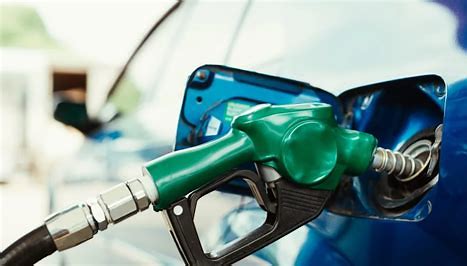FG Unveils Bold Plan to Cut Fuel Costs and Boost Clean Energy
FG Unveils Bold Plan to Cut Fuel Costs and Boost Clean Energy
By Achimi Muktar
In a major push to reduce Nigeria’s dependency on petrol and slash transportation costs, the Federal Government has announced plans to roll out 150 brand-new Compressed Natural Gas (CNG) refilling stations nationwide — and all within the next 18 months.
The announcement was made on Monday at the Presidential Villa in Abuja, where Michael Oluwagbemi, Chief Executive of the Presidential Compressed Natural Gas Initiative (PCNGI), unveiled the ambitious strategy to journalists.
“We’re committed to making this work for Nigerians,” Oluwagbemi declared, as he laid out the Initiative’s road map to expanding access to CNG — a cleaner, cheaper, and safer alternative to petrol.
According to him, private sector partners have been mobilized to execute the deployment of over 150 new refueling stations, covering all geopolitical zones.
“The NNPC has already deployed 12 sites with 8 more to be added this quarter,” he said. “Approval has been secured for an additional 100 locations, while NIPCO has imported equipment for 32 daughter station sites, 22 of which are operational and 8 under construction.”
Other private companies like Bovas, Ay Shafa, Ibile Oil and Gas, and Mikano are also stepping in, with multiple refilling stations currently in the works.
This aggressive infrastructure rollout is a part of the FG’s broader plan to mainstream clean, cost-effective energy as a viable solution for the country’s transport and logistics sectors.
However, Oluwagbemi didn’t shy away from addressing past concerns. Referring to a tragic October 2024 explosion involving a CNG-powered vehicle in Benin, which left three injured, he clarified that the incident was the work of economic saboteurs who had illegally fabricated and installed CNG cylinders. The culprits, he said, have been arrested.
“To prevent future occurrences,” he continued, “we are rolling out the Nigeria Gas Vehicle Monitoring System (NGVMS) by year-end. Only certified vehicles with labelled tanks will be allowed to refuel.”
He further assured that the PCNGI is taking safety and regulatory compliance seriously, citing close partnerships with the Standards Organization of Nigeria (SON) and the National Automotive Design and Development Council (NADDC) to enforce best practices across the board.
“This is why we issued safety and regulatory standards from the get-go, back in March 2024,” Oluwagbemi noted. “We’re not just building stations — we’re building trust and ensuring Nigerians are safe while saving money.”
With CNG now gaining traction as a cost-effective solution amid soaring fuel prices, the addition of 150 stations could be the turning point in Nigeria’s clean energy transition — and a major relief for millions of commuters and transport operators.
As the countdown begins, the message from the PCNGI is clear: Cleaner fuel, cheaper rides, and a safer future are on the way.




















